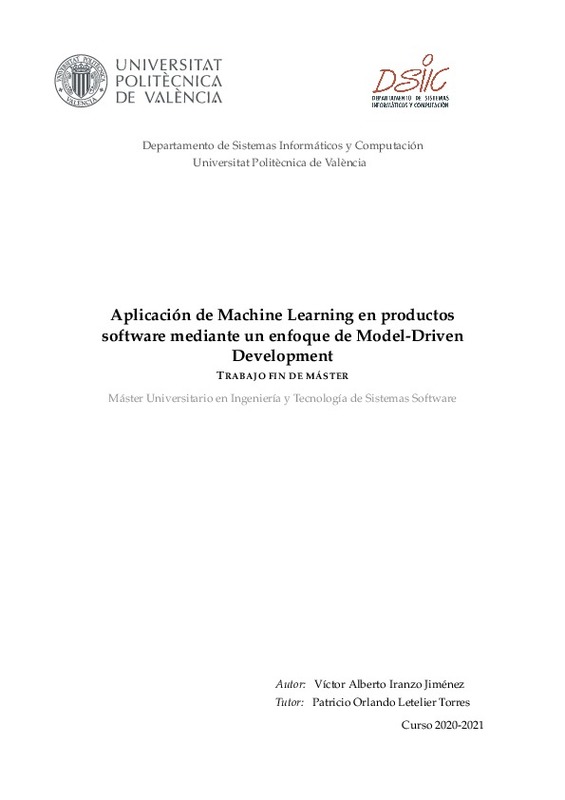JavaScript is disabled for your browser. Some features of this site may not work without it.
Buscar en RiuNet
Listar
Mi cuenta
Estadísticas
Ayuda RiuNet
Admin. UPV
Aplicación de Machine Learning en productos software mediante un enfoque de Model-Driven Development
Mostrar el registro completo del ítem
Iranzo Jiménez, VA. (2021). Aplicación de Machine Learning en productos software mediante un enfoque de Model-Driven Development. Universitat Politècnica de València. http://hdl.handle.net/10251/175328
Por favor, use este identificador para citar o enlazar este ítem: http://hdl.handle.net/10251/175328
Ficheros en el ítem
Metadatos del ítem
| Título: | Aplicación de Machine Learning en productos software mediante un enfoque de Model-Driven Development | |||
| Autor: | Iranzo Jiménez, Víctor Alberto | |||
| Director(es): | ||||
| Entidad UPV: |
|
|||
| Fecha acto/lectura: |
|
|||
| Resumen: |
[ES] En la actualidad, cada vez es más relevante y demandada la figura del científico de datos en el sector de las TIC. Con el fin de satisfacer esta demanda, han surgido herramientas que permiten dotar de inteligencia a ...[+]
[EN] Nowadays, the figure of the data scientist in the ICT sector is increasingly relevant and in demand. In order to meet this demand, frameworks have emerged that allow cognifying applications following low-code or no-code ...[+]
|
|||
| Palabras clave: |
|
|||
| Derechos de uso: | Reconocimiento - No comercial (by-nc) | |||
| Editorial: |
|
|||
| Titulación: |
|
|||
| Tipo: |
|







